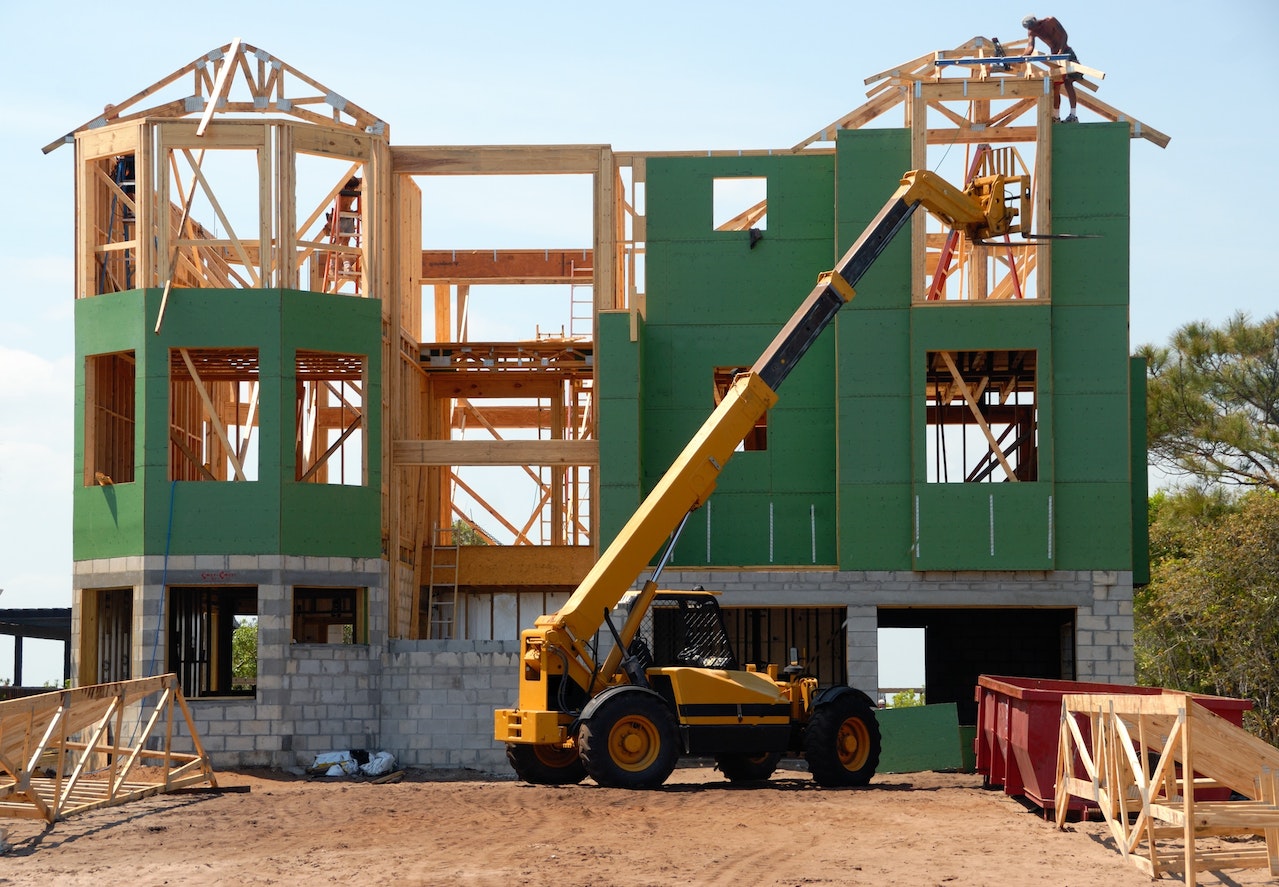
Lessons from 2008 for today's housing market
___
Published Date 4/11/2025
Writer Allaire Conte for Realtor.com reminds us that what goes around can still come around where real estate is concerned. She kicks off her recent report by referring to a viral post that appeared on real estate X (formerly known as Twitter), showing a sign outside a construction site 45 minutes north of Tampa, FL that reads: “NEW HOMES ZERO DOWN.” The caption? “It’s beginning to look a lot like 2008.”
Utter that year to Realtors who survived that crisis and they might shakily reminisce a bit. They’ll talk about builder incentives going through the roof while inventory kept growing in select markets — alluding to the 2008 housing crisis and financial collapse.
So now the question is being asked: Are today’s homebuyers facing the same risks? "I think the key lesson from comparing 2008 to today's housing market is that context really matters," says Realtor’s Chief Economist Danielle Hale. "While the low level of home sales might seem reminiscent of the mid-2000s, the driving factors are very different."
Conte spoke to several housing experts to share what they learned from the 2008 crash and how today’s buyers can make smarter, safer decisions in 2025.
“In some fast-growing markets, like parts of Florida and Texas, today’s housing trends might feel eerily familiar,” says Conte, who cites rising inventory. Sluggish demand, and homebuilders scrapping amongst themselves to offer the steepest incentives.
Real estate analyst Nick Gerli, the author of the X post, highlighted a development where 12 newly-built homes are sitting on the market. He tells of how, according to a builder’s agent on-site, the company was offering 0% down mortgages and even preparing to convert some homes to rent-to-own —moves that Gerli says echo the last housing downturn.
In yet another X thread, Gerli pointed out that mega homebuilder Lennar has offered incentives totaling 13% of its revenue on new home deliveries, the largest seen in more than a decade.
“While these tactics may feel reminiscent of 2008, the experts we spoke to weren’t so convinced,” says Conte. “For one, unlike the conditions that led to the last crash, today’s price growth is being driven primarily by real supply and demand, not speculative buying or reckless lending.”
Experts today speak of a structural deficit of housing, contrasting it to 2008 when there was too much supply and sources of phantom demand brought about by poor underwriting standards, which resulted in a steep drop for home prices.
Lending practices have also morphed since then. The mid-2000s had lax standards, while most buyers today are highly qualified thanks to the regulations of the Dodd-Frank Act, making it much harder to borrow more than you can afford.
Most strikingly, though, Hale says 2025's greatest protection against collapse is the financial strength of homeowners. "Economic stress among homeowners in 2008 prompted those in a precarious financial position who were underwater, or owed more than their home was worth, to leave their homes," she says.
"Even if home prices were to fall by up to 20% overnight, there would still be more equity in today's homes as a share of value than was in the market before the decline in 2008," she explains. "This is not to say that all individuals are in the exact same position, and certainly there are some who would find job loss or other financial hardship challenging. But the total picture is such that, in aggregate, homeowners are in a much better position."
While builder incentives are grabbing headlines, experts say they reflect regional cooling in overheated markets—not a repeat of the last national crisis.
So what lessons can be learned so that history doesn’t repeat its 2008 self? The first, says Conte, is to not overextend yourself; to live within your means and understand that whether or not you can afford something comes down to more than a simple monthly payment. Buy what you can comfortably afford—maybe even a little less so you can sleep at night if bad things happen. Just because your lender says you qualify for a larger loan doesn’t mean you should take it. “Have a budget, and stick to it,” she says experts advise.
“It’s also important to prepare for the unexpected. Having a financial cushion can prevent short-term setbacks from snowballing into long-term problems.” She goes on to suggest setting a goal of stockpiling three months of expenses away as a reserve or emergency fund, as many financial problems start with an unexpected expense or job loss. That means resorting to credit cards—and that becomes a slippery slope.
It’s also wise to study the structure of your loan. While adjustable-rate mortgages (ARMs) offer lower initial payments, they can become risky if rates continue to fluctuate. “ARMs can seem attractive at times … but if rates spike, you are going to have to deal with that too,” says lender Adam Hamilton. “In times of uncertainty, fixed-rate mortgages can be the best choice because they allow your mortgage payments to remain predictable.”
So how to hedge against what might come in 2025? It isn’t about trying to time the market perfectly. It’s about knowing your financial limits, understanding the full cost of homeownership, and choosing a mortgage that works for you for the long run.
Realtor, TBWS
All information furnished has been forwarded to you and is provided by thetbwsgroup only for informational purposes. Forecasting shall be considered as events which may be expected but not guaranteed. Neither the forwarding party and/or company nor thetbwsgroup assume any responsibility to any person who relies on information or forecasting contained in this report and disclaims all liability in respect to decisions or actions, or lack thereof based on any or all of the contents of this report.


Millenium Home Mortgage
Manager
NMLS: 51519
Millenium Home Mortgage LLC
1719 Route 10 East, Suite 206, Parsippany NJ
Company NMLS: 51519
Office: 973-402-9112
Email: connie@mhmlender.com

Millenium Home Mortgage
___
Manager
NMLS: 51519
Last articles
___

March import prices came in lower than expected
4/15/2025
March Import Prices contracted by -0.1% versus estimates of 0.0% on a...... view more

Playing mortgage roulette in a volatile market
4/14/2025
It’s anyone’s gamble where mortgage rates are concerned. Economic uncertainty ra... view more

Lessons from 2008 for today's housing market
4/11/2025
Lessons from 2008 can help you in 2025...... view more

Markets have a tepid response to March Small business Optimism Index
4/8/2025
The March NFIB Small Business Optimism Index dropped from...... view more

Spring shift? The more things change, the more they barely budge
4/7/2025
“Hamstrung” is a word aptly applied to describe...... view more

Markets get a boost on the morning reports
4/1/2025
February Construction Spending will hit at 10 am ET and is expected to rise from... view more

Housing market defies gravity
3/31/2025
The price of an American home seems to be going nowhere but up...... view more

Power up profits when selling your solar-powered home
3/28/2025
When solar panels first appeared on the roofs or in the backyards of American ho... view more

February PCE inflation data reported a little higher than expected
3/28/2025
Find out what's going on in the mortgage and real estate market. The report incl... view more
Load more
 Millenium Home Mortgage LLC
Millenium Home Mortgage LLC




